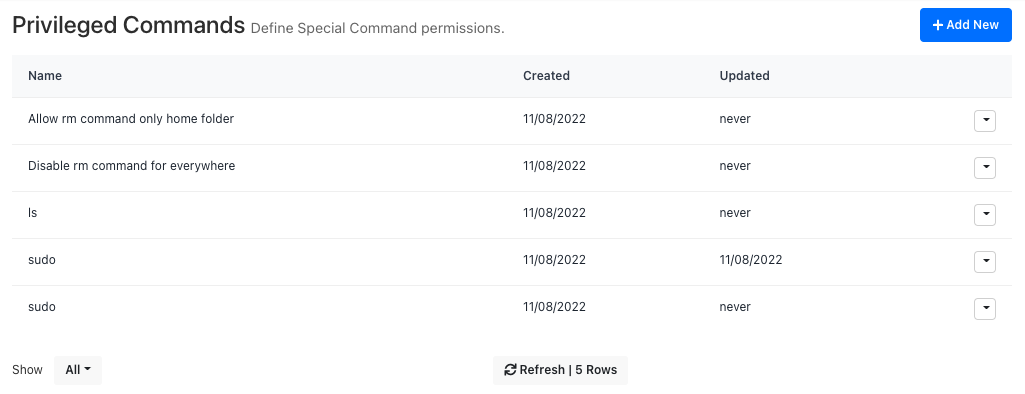Privilege
In computer systems, "privilege" often refers to a specific level of access or permissions that a user or process has to particular resources or actions. These privileges can be granted or revoked by an administrator or an other authorized user, typically used to control access to sensitive or restricted areas of a system.
MonoPam helps you to restrict a command when you connect an SSH resource and execute something on that resource. The more vital part of MonoPam checks the restriction before sending that command to the server.

In order to manage privileges on a system, administrators often use command-line tools or graphical user interface (GUI) tools. These tools allow administrators to view, modify, and manage the privileges of users and processes on the system. Some common examples of privilege commands include chmod, chown, and sudo.
It is important to note that privilege management is critical to computer security. Properly managing privileges can help to prevent unauthorized access to sensitive data or actions, and it is an essential part of maintaining the overall safety of a system.
